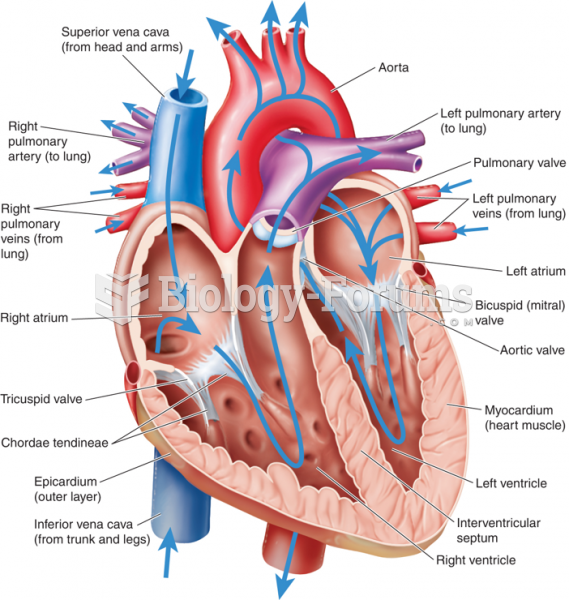|
|
|
Studies show that systolic blood pressure can be significantly lowered by taking statins. In fact, the higher the patient's baseline blood pressure, the greater the effect of statins on his or her blood pressure.
Many medications that are used to treat infertility are injected subcutaneously. This is easy to do using the anterior abdomen as the site of injection but avoiding the area directly around the belly button.
The average adult has about 21 square feet of skin.
Many people have small pouches in their colons that bulge outward through weak spots. Each pouch is called a diverticulum. About 10% of Americans older than age 40 years have diverticulosis, which, when the pouches become infected or inflamed, is called diverticulitis. The main cause of diverticular disease is a low-fiber diet.
More than 34,000 trademarked medication names and more than 10,000 generic medication names are in use in the United States.
 Apply effleurage to face with palms. Place the hands gently on the face with fingertips at the jaw. ...
Apply effleurage to face with palms. Place the hands gently on the face with fingertips at the jaw. ...
 With the arm placed on the table, apply effleurage over the entire upper limb as a reconnecting and ...
With the arm placed on the table, apply effleurage over the entire upper limb as a reconnecting and ...





